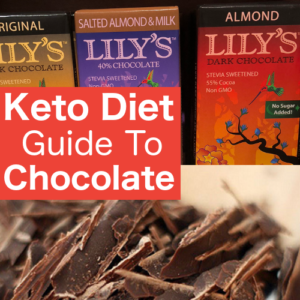Keto Diet 101
Congratulations: you’re researching a new way of eating that will change your life.
What is the Keto Diet?
A ketogenic diet, or “keto diet”, is a high fat, low carbohydrate, moderate protein way of eating that offers many health benefits. Weight loss is a welcomed side effect of a keto diet, as the keto diet was originally used to treat various diseases and disorders. If you’ve researched low carb diets, you’ll find the ketogenic diet to be similar to the Atkins Diet and general low carb diets.
On a keto diet, the body uses ketones as energy instead of carbohydrates, and enters a ketone-producing state known as “ketosis”. A state of ketosis is achieved when you deplete your body of stored glucose and maintain a keto diet of 20 net carbs (or less) per day. Once glucose is depleted and you’re maintaining a low carb diet, you’ll continuously produce ketones and get all the health benefits of a ketogenic diet.
Keto Diet Health Benefits
There are quite a few health benefits that come with following a keto diet. Most people can benefit from following a low carb, high fat diet, as the most common benefits are weight loss and increased energy levels. Check out the Top-7 Ketogenic Diet Health Benefits blog post for details on each health benefit.
#1: Weight Loss
#2: More Energy
#3: Better Mental Focus
#4: Reduced Hunger
#5: Normalize Blood Sugar
#6: Improve Cholesterol Levels
#7: Less Acne
What is Ketosis?
Medical News Today describes ketosis as:
Ketosis is a normal metabolic process. When the body does not have enough glucose for energy, it burns stored fats instead; this results in a build-up of acids called ketones within the body… The aim of the diet is to try and burn unwanted fat by forcing the body to rely on fat for energy, rather than carbohydrates.
What is a Ketone?
Ketones are naturally produced by your body when you’ve entered a state of ketosis. Ketones are produced by the liver once your body has been depleted of glycogen stores.
What is the Keto Flu?
The keto flu struggle is real, but easily avoidable (or lessened). The keto flu is your body reacting to cutting carbs from your diet (think of it as a carb withdrawal). Keto flu typically lasts a week or less, but for some it can be longer. Some people won’t experience the keto flu (and they’re lucky).
Symptoms of the keto flu I’ve experienced:
- Tired and sluggish feeling
- Trouble sleeping
- Brain fog and poor focus
- Stomach discomfort
Everyone will have a different version of keto flu, and will vary greatly depending on your diet prior to starting keto. I’ve found that the worse your diet was, the worse the keto flu will be.
The best way to combat keto flu is to supplement your electrolytes, stay hydrated and make sure to eat enough keto-friendly foods. Try not to focus on calories so much in the beginning. Bacon makes everything feel better.
How do I start keto?
You’ve made it this far in your research and learned the benefits of a keto diet – now what? You start! Like any significant life change, shifting your way of eating can seem overwhelming and intimidating. Beginning a keto diet is no different from learning a new hobby: you’ve got to learn the basics before you can master it. You’ll make mistakes in the beginning, but gradually you’ll learn and adapt. Soon enough you’ll be a fat burning machine!
Here are a few basic tips to start a ketogenic diet:
#1 Discuss with your doctor
#2 Calculate your macros
#3 Plan Your Meals
#4 Have your supplements ready!
#5 Eat what you want (keto food!)
#6 Read all food labels
#7 Be cautions when eating out
#8 Don’t worry about exercise (yet
#9 Get enough slee
#10 Relax – great things takes time
Read more about each of the tips listed below in our “Getting Started” blog post.

Keto Diet Macros






